Most IPEd members live in their state’s capital city and are freelance editors. When it comes to experience, members are a diverse group with anywhere from less than 5 years editing experience to more than 20 years experience.
This information comes to us from the April 2024 IPEd members survey.
There were 230 respondents to the survey. The overall response rate was 17% based on membership numbers at 30 April 2024.
It has been five years since the Institute of Professional Editors (IPEd) conducted a complete member survey. The last full member survey was in 2019 and since then we have requested feedback in smaller surveys around editors’ work and income, the IPEd conference and the impacts of Covid.
The Board and staff use this data to inform IPEd’s strategic priorities and improve the member experience. Here we share some highlights from the member survey.
About you
On the question of IPEd membership, 73.5% of respondents identified as Professional members, 19.6% as Associate members, 3% as student and Graduate members while Organisational members were 1.3%. Honorary Life Members also made up 1.3% of respondents.
The majority of respondents (83.9%) were female, 14.8% were male and 1.3% preferred not to respond.
A total of 5% of respondents were from culturally and linguistically diverse backgrounds, 1.7% were Aboriginal or Torres Strait Islander and 2.2% preferred not to respond.
Around 15% of respondents identified as having a disability.
On the question of age brackets, 32.6% of respondents were between the ages of 56 and 65, with 32.6% also in the age bracket of 46 to 55. The next highest age bracket was 36 to 45 with 12.2% of respondents. Almost 8% of respondents were 70 or older while less than 0.5% were younger than 25.
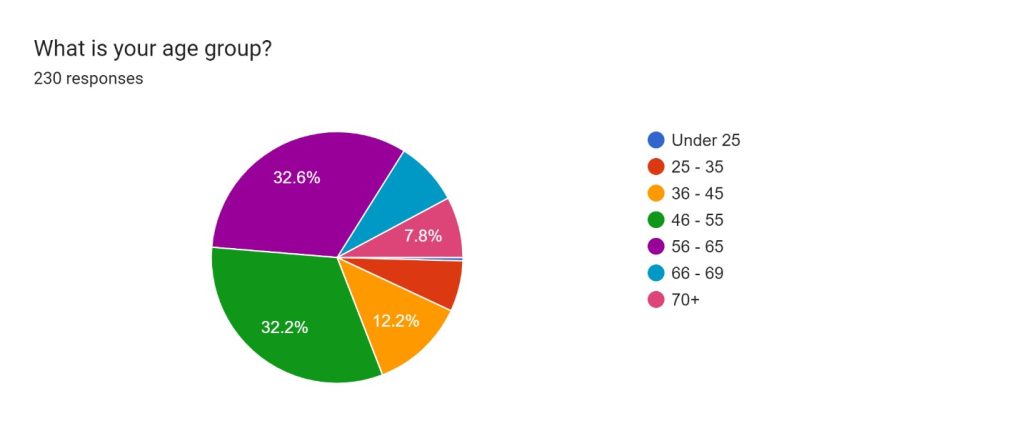
Most respondents were from Editors Victoria, whose responses made up 33% of the total (Editors Victoria comprises 31% of total membership), closely followed by Editors NSW with 28.3% (28% of membership) and Editors Queensland with 14.8% of responses (20% of membership). Editors South Australia provided 7% (7% of membership), Editors Tasmania 2.2% (3% of membership), Editors Aotearoa New Zealand 6.1% (4% of membership) and Editors Western Australia 8.7% (7% of membership).
Most respondents said they live in their state’s capital city (54.8%), followed by close to their capital city (15.2%), a major city in a regional area (13.9%), and a small regional town (11.7%). Just 3% of respondents said they live in a remote or rural area and 1.3% live outside Australia and New Zealand.
Respondents were also members of many other organisations, including writers centres and author groups. Respondents also listed the Australian and New Zealand Society of Indexers (ANZSI), Canberra Society of Editors (CSE), Media, Entertainment and Arts Alliance (MEAA), New Zealand Society of Authors, and Chartered Institute of Editing and Proofreading (CIEP) in the UK.
Education and experience
Of the members who responded, 73% said they work as self-employed editors, employee editors accounted for 14.8% of respondents and 8.3% work in a related area, while 3.9% said they are not currently working in editing or a related area.
When it comes to years of editing experience, 27% of respondents had more than 20 years experience and 12.2% had between 16 and 20 years experience. Another 17.4% had between 11 and 15 years experience, while 22.6% had 6 to 10 years of experience and 20.9% had 5 or fewer years of editing experience.
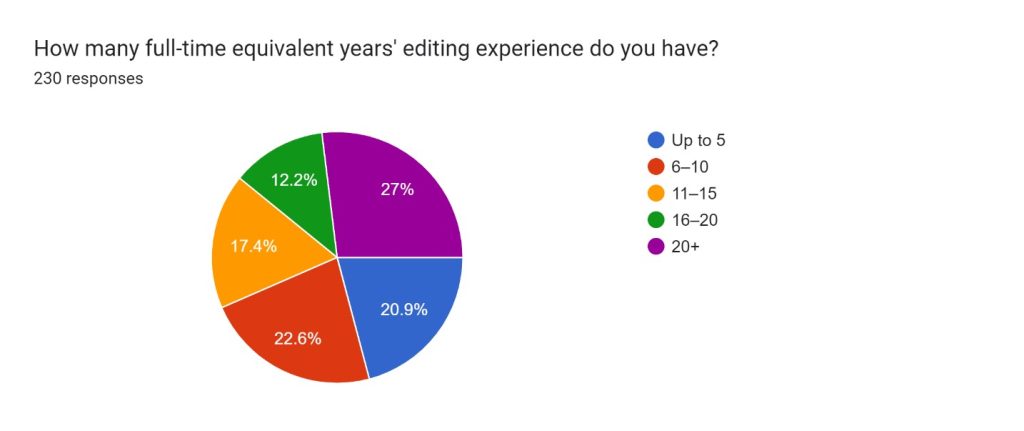
Figure 3 shows results for the highest level of education achieved, with 40.9% of respondents holding undergraduate degrees and 53.9% a masters or doctorate.
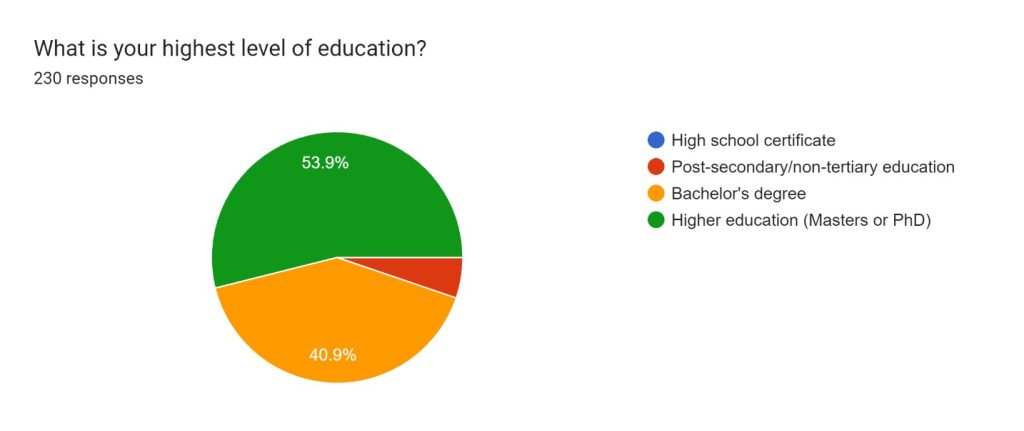
Membership benefits and professional development
The most useful IPEd resources for editors are shown in Table 1. Respondents were able to select more than one answer. Professional development was the top response followed by the website and web-based resources, the Gatherings newsletter, and IPEd publications such as Standards for editing practice and Books without barriers.
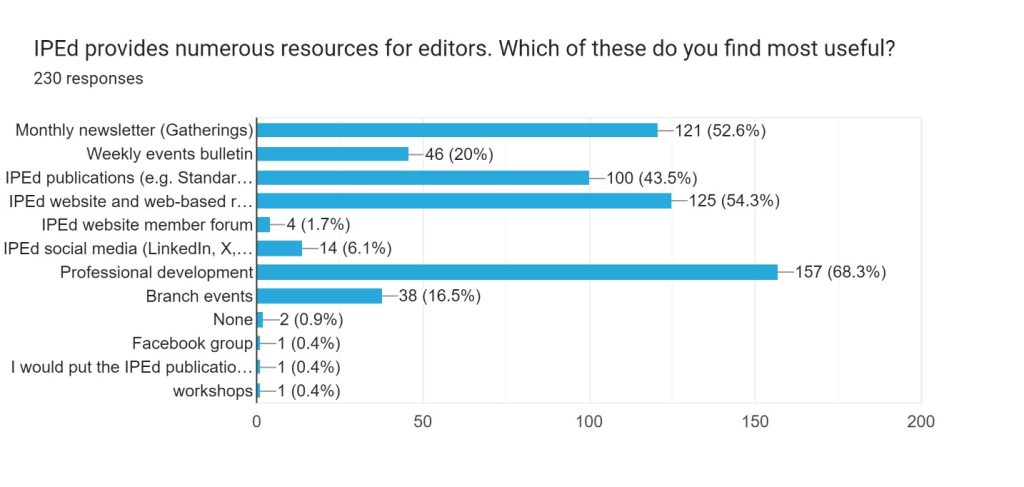
Respondents were able to select as many options as they wished when identifying the areas of professional development that would be most useful to them. The 10 most commonly selected options in order were:
- Pre-recorded training webinars
- Speaker presentations and panels (1 to 1.5 hours) – Zoom
- Training workshops (2 to 12 hours over 1 to 3 sessions) – Zoom
- Quick tips sessions – short and sharp on specific topics (Zoom or recording, 15 to 20 minutes)
- Speaker presentations and panels (1 to 1.5 hours) – recordings
- Networking
- In-depth training courses (1 to 3 hours regularly over 2 months or more) – Zoom
- Podcasts
- Training workshops (2 to 9 hours over 1 to 3 sessions) – in-person
- Speaker presentations and panels (1 to 1.5 hours) – in-person
Formal recognition of IPEd’s professional development was valued by 68.7% of respondents. Microcredentialling was the most valued form of recognition (44.7%), followed by a certificate of participation (27.7%) and a digital badge (23.3%). Other suggestions included an annual summary of completed courses and CPD or “AE” points that could be accrued against accreditation renewal.
Next we come to the most useful types of PD content. The top area of content was specialist editing skills and the area with least interest was business or freelance skills. The types of specialist editing skills valued are shown in Table 2 and the types of technical skills valued are shown in Table 3.
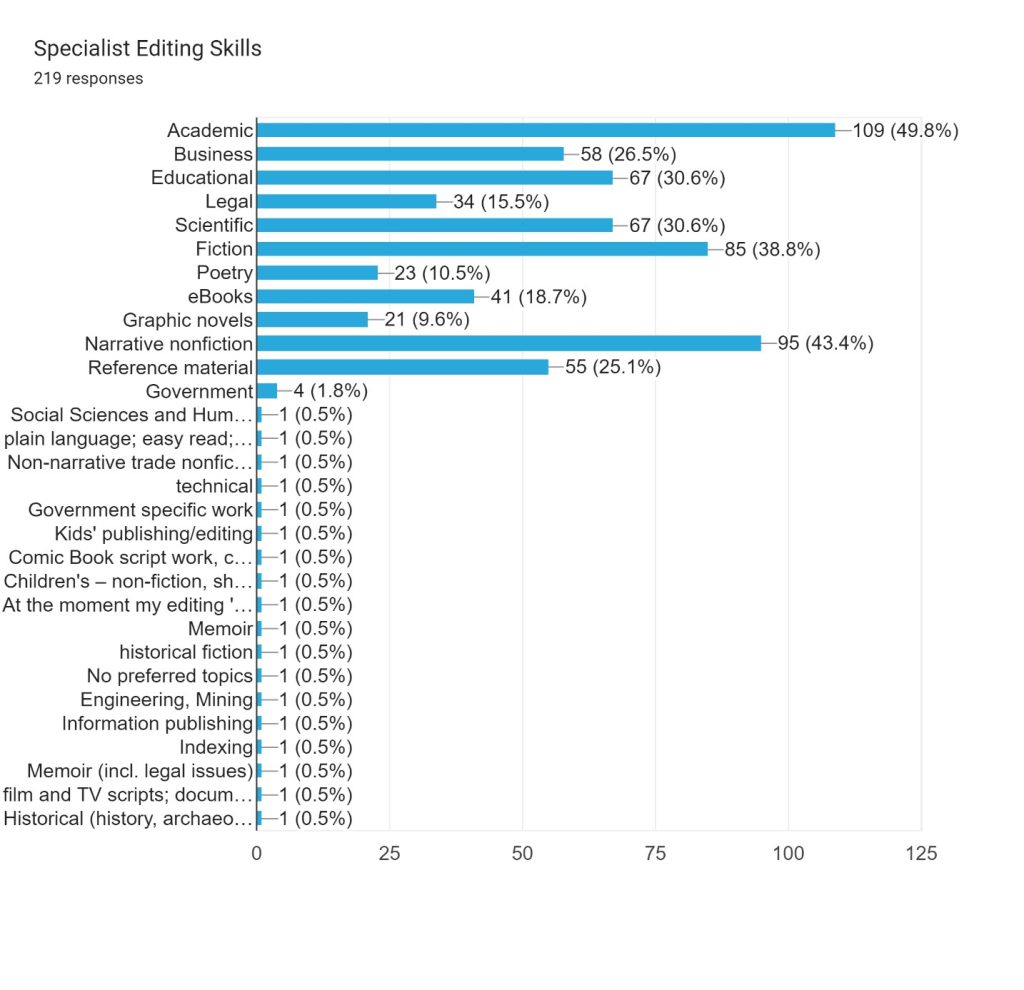
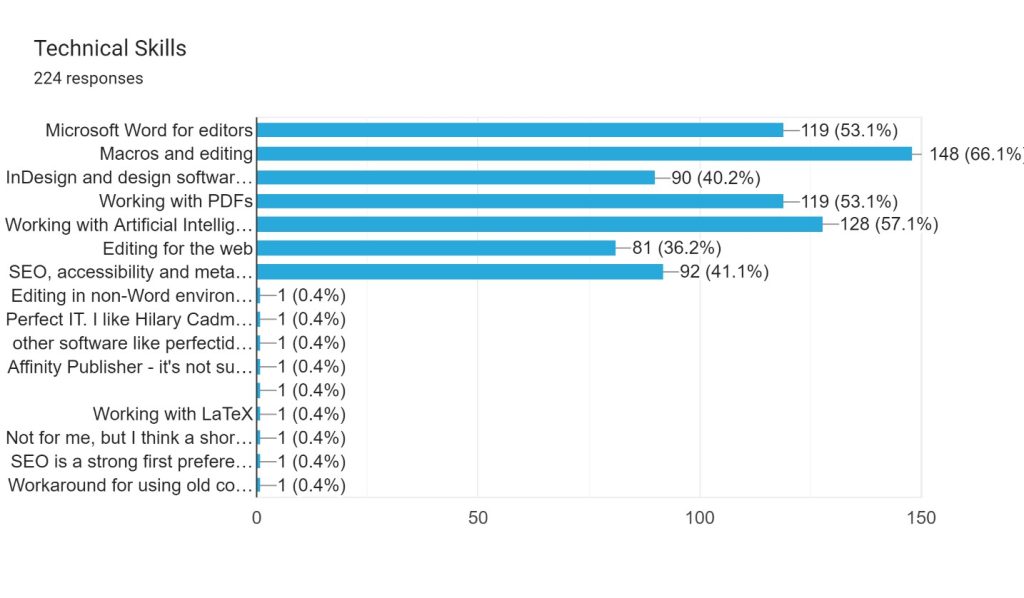
For those members based outside a capital city, the most requested form of support was online PD and presentation followed by in-person networking where they were located.
According to respondents, the most important activities for IPEd were “advocacy for and promotion of the value of editors” and “professional development activities organised by or promoted through IPEd”.
Volunteering with IPEd
Of all the respondents, 68.3% stated that they had not volunteered for IPEd before. Of those who had, 17.8% volunteered between 1 and 20 hours in 2023, while 7.8% volunteered more than 55 hours in 2023.
The most common threads to improve the volunteering experience were to increase the number of volunteers to share the load, less administration, clarity of roles and a buddy system.
IPEd’s performance
Respondents rated IPEd’s performance on a scale of 1 (good) to 10 (bad) with over half of respondents choosing option 1, 2 or 3.
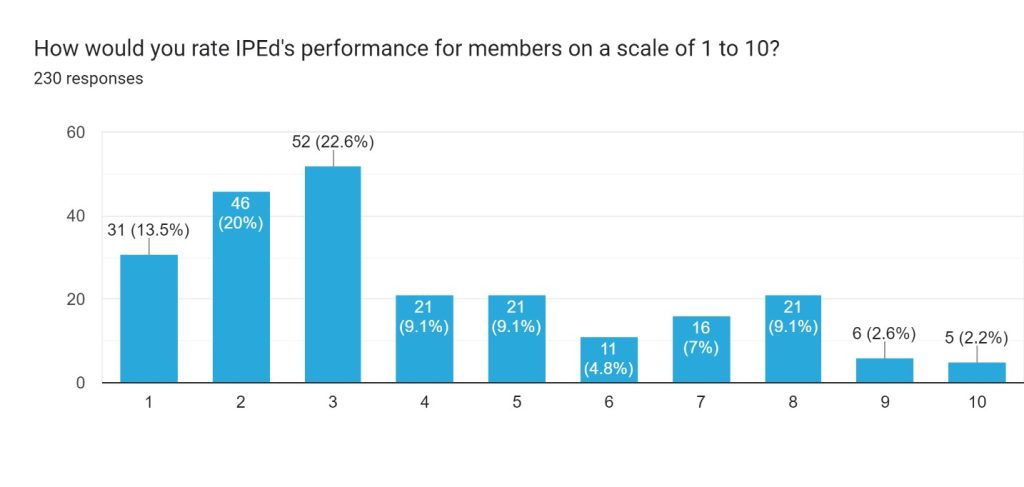
Respondents were also asked to comment on how IPEd’s performance had changed over the last 1 to 2 years, with 36.1% indicating that it has improved.
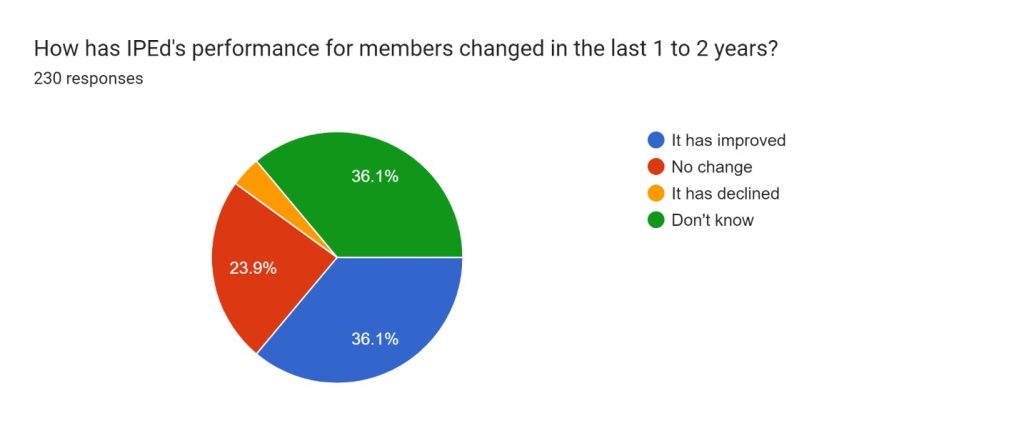
Note: Totals that do not add up to 100% indicate that some respondents did not provide a response.

